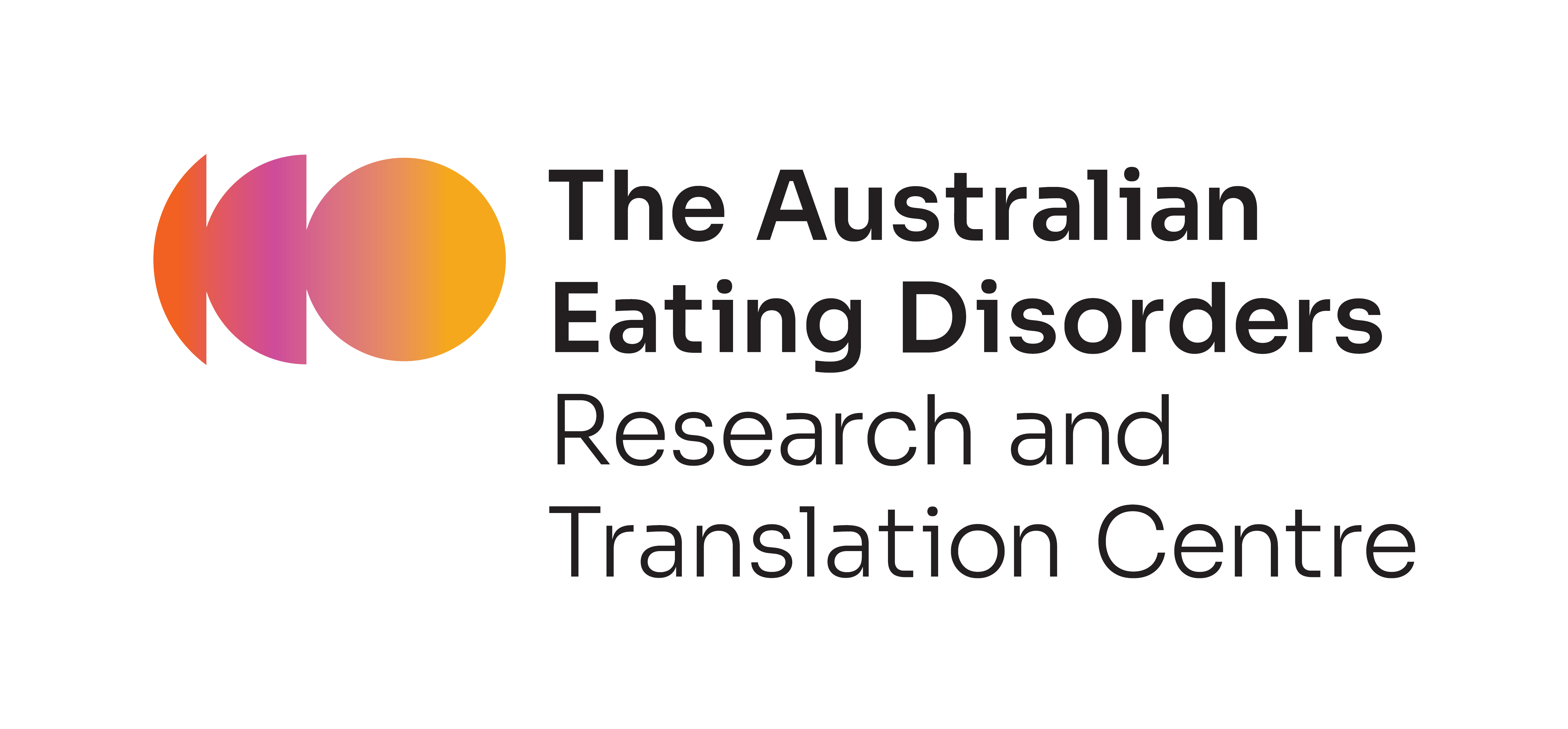Keynote Speaker: Professor Nadia Micali
MD, MRCPsych, PhD, FAED
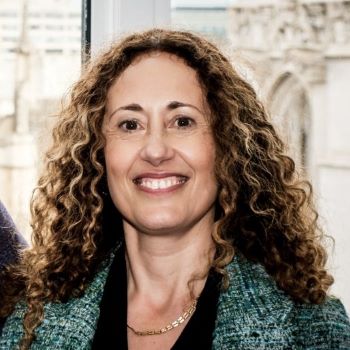
Nadia Micali is a child and adolescent psychiatrist, specialist in eating disorders, head of research and founder of the Center for Eating and feeding Disorders Research (CEDaR), Copenhagen Hospitals Mental Health Services, Copenhagen, Denmark, and professor of psychiatry at the University of Copenhagen. She received her MD from the University of Messina School of Medicine in Italy, and her PhD from the Institute of Psychiatry, King's College, London. Prior to starting CeDaR she was a senior lecturer and consultant psychiatrist at the Institute of Child health, University College London, and Great Ormond Street Hospital. Between 2014 and 2017 she was associate professor of psychiatry at the Icahn School of Medicine at Mount Sinai, New York, US. In the period 2017-2022, she was head of the Child and Adolescent Psychiatry Division at University Hospital Geneva, and professor of child and adolescent psychiatry at the University of Geneva, Switzerland, where she also set up a multidisciplinary evidence-based treatment program for child and adolescent feeding and eating disorders from scratch. In the last 15 years her research has focused on understanding biological and intergenerational risk for eating disorders using a developmental perspective, and on population-based and clinical studies aimed at improving recognition and treatment of feeding and eating disorders. Her research spans several methods, such us epidemiology, genomics, behavioural and clinical studies, physiology, and neuroimaging. She currently leads 5 large grants spanning biological risk and resilience in eating disorders, genetic and environmental risk for ARFID, and developing and testing existing and new interventions for EDs. She has been on the editorial board of several journals in the field. She currently serves as an elected executive board member on the Eating Disorders Research Society (for which she served as president in 2015), and on the membership committee of the International Society of Psychiatric Genetics. She served on several committees of the Academy of Eating Disorders between 2005-2020. Her contributions to the field of eating disorders have been recognized by several awards, most notably a fellowship by the Academy of Eating Disorders in 2014, her election as 2015 president of the Eating Disorders Research Society, and a Leadership in Research Award from the Academy of Eating Disorders in 2022. She co-chairs the London International Eating Disorders Conference. Over the course of her career, Dr Micali has written over 200 peer reviewed papers.
Keynote Speaker: Professor Damien Keating
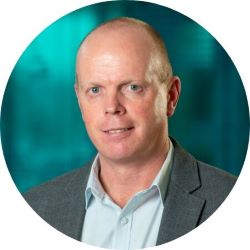
Prof Damien Keating obtained his PhD at The University of Adelaide in 2003 and undertook post-docs in Hamburg and Melbourne. He is currently Deputy Director of the Flinders Health and Medical Research institute (FHMRI). His research is focused on how sensory cells that line our gastrointestinal wall can sense the unique gut environment to impact diverse physiological pathways. A major current focus is on how these cells activate gut-brain signalling and the relevance of this pathway for mental health disorders. He will present new data demonstrating how a long-used mood stabiliser functions via this pathway.
Speaker: Professor Antonio Verdejo-Garcia
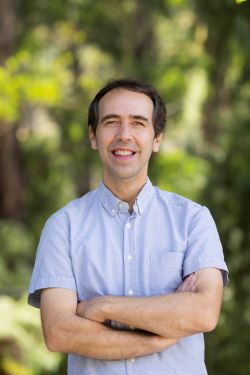
Antonio Verdejo-Garcia is a Professor (Research) in the School of Psychological Sciences and the Turner Institute for Brain and Mental Health at Monash University. He is also an NHMRC Leadership Fellow, and the Co-Chair of the Neuroscience Interest Group at the International Society of Addiction Medicine. Antonio has a PhD in Psychology (University of Granada, 2006). He subsequently took on postdoctoral training at Johns Hopkins University (Baltimore, US), the University of Cambridge (Cambridge, UK) and the Hospital del Mar Institute (Barcelona, Spain). Antonio's research focuses on the cognitive and neural mechanisms underpinning cognitive control and decision-making, and their implications for addictions, uncontrolled eating and obesity. He has published >300 peer-reviewed articles and edited a book on Cognition and Addiction (Academic Press, 2020).
Speaker: Professor Sarah Cohen-Woods

Sarah is a Matthew Flinders Fellow situated within the Flinders University Institute for Mental Health and Wellbeing. In 2016 Sarah established the Behavioural Genomic and Environmental Mechanisms lab which focuses on the nexus between our genes and environment and how they interact to alter our psychological and health outcomes, with a focus on epigenetics across the life-cycle – from conception to old age. With her lab’s work investigating the impact of stress - both psychological and physiological (ie., effects of disordered eating) - and how this impacts health outcomes, and its relationship with genetic and epigenetic factors in psychological disorders and cognition, her lab spans across both the mind and body. Sarah is co-Chair of the Australian Brain Alliance, sits on the Biological Psychiatry Australia Executive, and the International Brain Initiative.
Speaker: Dr Romi Goldschlager
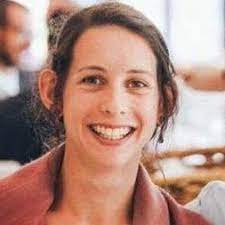
Dr Romi Goldschlager is a consultation liaison psychiatrist specialising in complex trauma, eating disorders, chronic pain and psycho-oncology.
Speaker: Dr Joanne Rathbone

Joanne Rathbone is a social and health psychology researcher. She uses theory-driven and applied methods to investigate social determinants of health and behaviour, with a particular focus on stigma, social identities, and intergroup relations. Joanne was awarded her PhD in social psychology from the University of Queensland in November 2021. Her thesis examined novel psychological and social determinants of weight stigma and discrimination and the implications for public and primary health care. Joanne is currently a Postdoctoral Fellow in the Research School of Psychology at ANU. Her research currently focuses on understanding how stigma and group norms create barriers to social support and health, including successful health promotion and access to quality health care, and the efficacy of interventions that strive to break down those barriers. Other research interests include the curative or harmful effects social groups can have on health and behaviour, and understanding the processes through which social connection with groups can be fostered or disrupted.
Speaker: Professor Zane Andrews
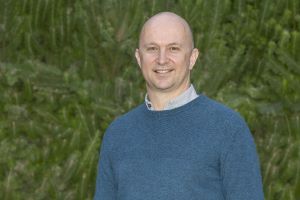
Professor Andrews is internationally recognised for his work on the neuroendocrine control of energy homeostasis and behaviour. He is currently the deputy editor-in-chief for Endocrinology, president of Hypothalamic Neuroscience and Neuroendocrinology Australasia (HNNA), and a council member on the International Neuroendocrine Federation. Professor Andrews uses preclinical animal models and viral genetic techniques to study how the brain controls food intake and associated behaviours. This includes the role of homeostatic and hedonic systems, and how they interact to influence both the need and the desire to eat. His lab is particularly interested in why and how the brain promotes the overconsumption of highly palatable energy dense foods and how this contributes to obesity. His group uses modern neuroscience techniques such as in vivo calcium imaging, optogenetics and chemogenetics to probe the physiological and behavioural function of neural circuits regulating appetite. He focuses on the hormone ghrelin, as a key hormonal signal of hunger, and AgRP neurons, as key hunger-sensing, neurons. His current work focuses on how these hunger-sensing systems control food intake and related behaviours such as reward, motivation, mood, memory and cognition.
Speaker: Dr Emma Louise Seal

Dr Emma Seal is a research fellow and the community wellbeing theme co-lead in the Social Equity Research Centre at RMIT University. Emma’s interdisciplinary research expertise intersects the cognate areas of sociology, humanities and critical theoretical approaches and broadly focuses on examining health and social inequalities. She has conducted applied research in a variety of contexts, including mental health and people's everyday health experiences. Emma’s research is driven by community engaged research practices and participatory methodologies to establish a common purpose and collectively work towards social change.
Speaker: Dr Tamara Borovica

Dr Tamara Borovica (she/her) works as an early-career researcher at the School of Global, Urban and Social Studies at RMIT. Tamara’s research focuses on embodiment, identity and the body and psycho-social approaches to mental health, well-being and belonging. Her expertise is in embodied and arts-based methods for participatory research inclusive of non-normative ways of knowing. Currently she works across a number of research projects exploring experiences of emotional and mental health distress among various populations.
Tamara also runs creative movement and embodiment classes for various audiences to explore links between movement, embodiment, creativity, belonging and well-being. Her interests are intersections between creative practice, social sciences, philosophy, arts, and compassionate action in the everyday.
Speaker: Ravi Iyer

As a senior Biostatistician at the Mental Health Australia General Clinical Trials Network (MAGNET), Australia's first clinical trials network supporting targeted and innovative research in adult mental health, Ravi Iyer plays a pivotal role. Tasked with advising clinical trialists on trial designs, regulatory requirements, and efficient trial conduct, Ravi's expertise extends to crafting statistical plans. Proficient in adaptive and Bayesian designs, Ravi adeptly simulates complex trial structures using R.
Beyond statistical analysis, Ravi harbors a strong research interest in vocal markers, encompassing speech prosody, timing patterns, frequency measures, and physiological indicators. Recognizing their utility in identifying clinical presentations such as suicide risk, schizophrenia symptoms, and depression, Ravi also sees potential in vocal markers for identity verification, akin to fingerprint analysis.
Parallel to his statistical and research endeavors, Ravi practices as a Psychoanalyst specializing in complex trauma within a private setting. Driven by a curiosity about how trauma becomes encoded in the body through unconscious processes, Ravi's therapeutic approach focuses on analyzing these subconscious mechanisms to promote a more fulfilling life for his clients.
Speaker: Dr Frank Iorfino

Dr Frank Iorfino is an NHMRC Emerging Leadership Fellow at the University of Sydney's Brain and Mind Centre. His research interests and expertise are in youth mental health and early intervention with a specific focus on how digital technologies can change the way we assess and manage emerging anxiety, mood and psychotic disorders. His work aims to improve personalised approaches through a better understanding of illness trajectories, specifically with regards to illness progression, suicidality and functioning. He currently leads a digital mental health program, which has established multidisciplinary partnerships with health service organisations, data scientists and industry to drive real-world impact that improves the quality of youth mental health care and leads to better outcomes for young people.
Speaker: Dr Meg Spriggs
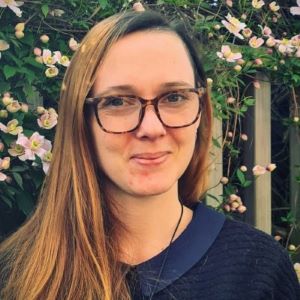
Dementia Friendly Senior Advisor for Alzheimers New Zealand\
Mental health lived experience & co-design consultant\
Experienced researcher in psychology, neuroscience, psychedelics and clinical trials\
Trained in Intentional Peer Support (IPS) & Mental Health First Aid\
Personal essayist and creative non-fiction writer (message for details)\
Eating disorder advocate
Dr Dominic Dwyer

Dominic trained as a clinical neuropsychologist before focusing on psychiatric research. He leads artificial intelligence research and translation at Orygen and The University of Melbourne.
Panel Discussion and Interactive Session Presenters: Co-Pro in Eating Disorders: Beyond hype, can we truly revolutionise research?
Prof Genevieve Pepin

Genevieve is an experienced mental health occupational therapist and academic. Built on almost 20 years work in the areas of mental health and eating disorders in Canada and at Deakin University in Australia and including partnerships with national and international leaders in the field, A/Prof Pepin has established herself as a significant contributor to eating disorders research.
Shannon Calvert
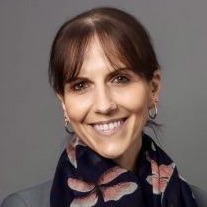
Shannon is a Lived Experience professional, having worked with government and non-government organisations in an advisory capacity, as a peer-work co-ordinator and mental health trainer.
She is involved with several national Boards and committees, mainly mental health, eating disorders and palliative care specific. Shannon is the Lived Experience Co-Production Co-Lead at the Australian Eating Disorders Research and Translation Centre and Consumer Co-chair of the National Mental Health Consumer Carer Forum. Recently she was appointed to the Million Minds Mental Health Research Mission expert advisory panel to guide Australia’s future roadmap in mental health.
Dr Sanna Barrandu

Interactive Session Facilitators: Theory vs Reality in Research and Policy Translation & Implementation
Dr Tania Withington

Dr Tania Withington is a Social Worker and Family Therapist in the role of Program Manager of the Children’s Health Queensland, Child and Youth Mental Health Service, Eating Disorder Program. Dr Withington is the co-lead in the development, implementation, evaluation and design of the Eating Disorder Program which is a large state-wide service offering evidenced based services and evidenced informing innovation for children and young people with eating disorders and their families. Dr Withington led the development, trial and ultimate embedding of the first evidenced based treatment telehealth service for eating disorders in Queensland, offering FBT and CBTe in regional rural and remote areas of Queensland since 2016. In 2020 Dr Withington led the development and implementation of the first public health available state-wide Day Program for children and adolescents diagnosed with eating disorders in Queensland with FBT and Emotional Focused Skills Training (EFST) as core intervention. In 2020 Dr Withington led the design and implementation of a longitudinal mixed method research project investigating efficient and effective treatment services for children and young people with eating disorders and their families incorporating current evidenced based treatments and innovative treatment options including an online psycho-education series for parents as preparation for treatment, a parent EFST treatment group, Day Program, and Attachment Based Family Therapy for eating disorders. Dr Withington herself is an accredited FBT Clinician and Supervisor, and Regional Faculty Member, of the Training Institute for Child and Adolescent Eating Disorders USA and has co-written FBT training with the Institute for the Australian context. Dr Withington co-chaired the ANZAED Child and Youth Treatment Special Interest Group in 2018-2019. More recently Dr Withington has been invited to join the Australian Eating Disorders Research & Translation Centre Governing Council and the National Eating Disorder Collaboration National Strategy Treatment Working Group. Dr Withington has presented at national and international conferences and published in peer review publications in the areas of eating disorders, child and youth mental health, child protection and aged care. Looking forward Dr Withington’s interests are directed to timely effective and innovative service delivery utilizing evidenced based, evidence informed and evidence informing models of service and care to promote recovery in children and young people with mental health concerns and their families.
Dr Kirsty Jones Crawford
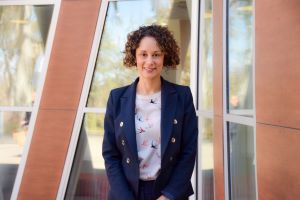
Dr Kirsty Jones is a Fellow at the Australian National University, Crawford School of Public Policy. At Crawford, she is Engagement and Impact lead for the Institute for Infrastructure in Society (I2S). Dr Jones’ offers world-leading expertise in knowledge translation, including research design to support research policy and practice impact, and experience training research leaders to integrate knowledge translation into their research projects and dissemination. Key areas of interest include: knowledge translation, research co-design, transdisciplinary research and implementation science.
Her current research focuses on supporting best practice engagement for infrastructure delivery, she has led Australia’s first industry co-designed Standards for Excellence in Community Engagement for major infrastructure projects. As the I2S lead on knowledge translation, she also develops programmatic knowledge translation plans to boost the research impact and application of all research undertaken by the Institute. This includes work to improve understanding of how co-production models of research can be optimised.
Dr Jones career is devoted to supporting leading non-profit and research organisations to improve stakeholder engagement with research to enhance societal and policy impacts. She has worked with major organisations nationally and internationally, including, the Wellcome Trust (UK) and the University of Melbourne’s Evidence and Child Health Unit, to design and deliver research with non-traditional impact
Panel Discussion and Interactive Session Presenters:
Leilani Darwin
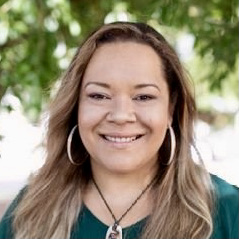
Leilani is an Aboriginal woman who has been touched on a personal level many times by suicide and mental illness. She is a Quandamooka woman, whose ancestral home is Stradbroke Island. Through her own lived experience and work within the sector, Leilani is a powerful advocate for Aboriginal and Torres Strait Islander led, culturally informed practices within mainstream services.
In 2016, Leilani was the recipient of the LiFE Award for Excellence in Aboriginal and Torres Strait Islander Suicide Prevention across Australia. Then again in 2016 she accepted an invitation to join the Queensland Suicide Prevention Taskforce for a three-year appointment. In 2017, Leilani was the proud recipient of the QLD Mental Health week Jude Bugeja Peer Experience award for devoting her professional life to assisting other Aboriginal and Torres Strait Islander People to have access to the mental health supports.
She has been published in several journals on topics such as youth suicide prevention and Aboriginal lived experience. Her recent work has included developing and creating key documents under the leadership of Professor Pat Dudgeon from University of Western Australia and LifeSpan with the Black Dog Institute for Primary Health Networks on:
Implementing Cultural Governance
Lived Experience for Aboriginal and Torres Strait Islander people
Implementing Indigenous systems approach to suicide prevention
Leilani also sits on several working committees and advisory boards at the National and State level where she advocates for greater inclusion of those with lived experience alongside the need for cultural leadership, self-determination and culturally safe services and policy reform for Aboriginal and Torres Strait Islander people.
Prof Boe Rambaldini
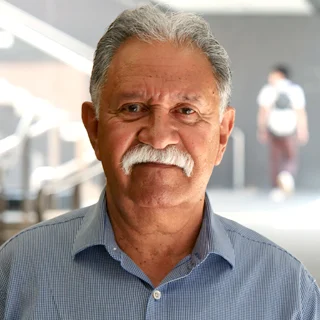
Boe, a First Nations Elder of the Bundjalung Nation on the north coast of NSW, has significant experience in the Indigenous health sector, as the director of the Poche Centre for Indigenous Health at the University of Sydney from 2017 to 2022 as well as an Associate Professor at Macquarie University and the co-lead at the Djurali Aboriginal and Torres Strait Islander Research and Education Centre. He was recently appointed as CEO of NSW's Aboriginal Health and Medical Research Council. Boe is chief investigator on several health-related grants, including ARDAC (Antecedents of Renal Disease in Aboriginal Children and young adults study) at Flinders University and improving care pathways in First Nations children.
Kyar Wilke
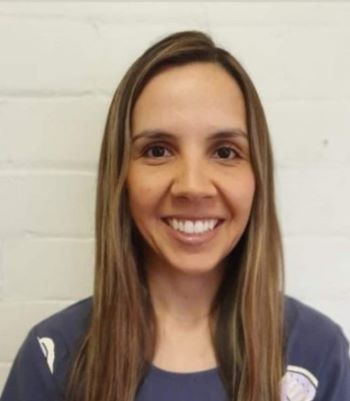
Kyar is a Ngarrindjeri woman from South Australia. She is a Research Assistant for the Inside Out Institute for Eating Disorders.
Kyar holds a Bachelor of Psychological Science (Honours), a Professional Certificate of Indigenous Research and is currently completing a Graduate Certificate of Indigenous Research and Leadership. She is a PhD candidate where her research explores the use of Motivational Interviewing with Indigenous people. Kyar has worked in various research and project roles in Indigenous health and education.
